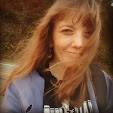I don’t read the poem of the day on the website Poetry Daily every day the way I once did. There’s so much to read. My house is aflow with text. I’m not complaining, but sometimes it means more to read the rain or the mist obscuring Sharptop or the drooping purple crocuses by the mailbox or the expression on the old farmer’s face in the beatup old flatbed at the stop sign in downtown Jasper at 6 a.m.
Today was full of poetry, as ever. The way the world smells at dawn in early February in the mountains of north Georgia is singular and wild. It’s different from the redclay smell of a country day in my hometown of Monroe and very different from the pungent gasoline tang of city dawns. There’s loamy soil in it and dew and wet leaves and something like creaturefur, like how my cat smelled last night after coming in from a roll in the humus.
The big moon is rising over the trees now. The woods around my house are faintly luminous with something like blackberry winter. The Lenten roses are a small field of bloom and tendril over behind the old garden. There are big limbs in my yard that I can’t bring myself to haul off to the brushpile. There’s a dry oakleaf spinning in a spiderweb adhered to my bedroom window. No lawn is left under the leaves in what used to be my backyard, and that space is shedding its skin of lawn and reacquainting itself with the forest. I’m going to let it. Poetry plays in ten thousand places, like Hopkins said, and more.
Here are a couple of things from a poet from Kentucky, Maurice Manning. I heard him read over in Waleska once, at Reinhardt College, and he had a sweet energy and mellow passion for his words that crawled up inside me and demanded more. These are from his collection Bucolics:
I
boss of the grassy green
boss of the silver puddle
how happy is my lot
to tend the green to catch
the water when it rains
to do the doing Boss
the way the sun wakes up
the leaves they yawn a bit
each day a little more
for a tiny reason then
when the leaves outgrow their green
the wind unwinds them Boss
that’s the way you go around
if you loose me like a leaf
if you unburden me
if I untaste the taste
of being bossed by you
don’t boss me down to dust
may I become a flower
when my blossom Boss is full
boss a bee to my blue lips
that one drop of my bloom
would softly drop into
your sweetness once again
if I go round that way
I’ll know the doing means
to you what it means to me
a word before all words
XIII
are you ever in my chest Boss
are you ever in there with a hammer
tapping on my rib cage as if
you want to make a hum drum
right where I can feel it how big
is that little hammer anyway
does it have a silver head Boss
does it spark against my ribs
I know they’re made of iron
I’ve got a heap of horseshoes
nested in my chest like heavy birds
boss you make them sing you tap
away is one arm bigger than the other
from all that hammering you do
I wonder if you’re knocking for
a reason are you just fooling Boss
or have you found a little door
O it it’s really you I wish
you’d whistle through the keyhole Boss
I wish you’d lift my little latch
--Maurice Manning










